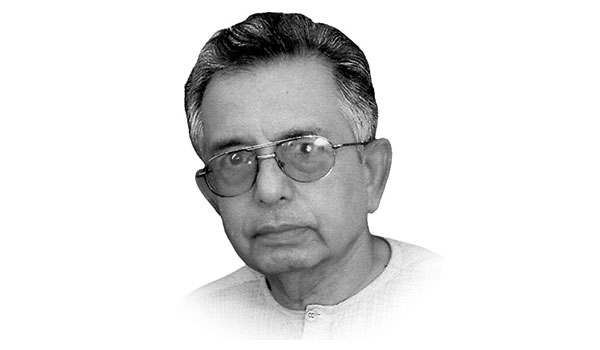Democracy or corruptocracy?
IN his article of June 18 titled ‘PTI’s foreign funding case renamed as prohibited funding. ’ former secretary of ECP, Kanwar Muhammad Dilshad, says: “LAST week Chairman NADRA met Chief Election Commissioner of Pakistan to help ECP remove human errors in voter lists, amidst a hue and cry over inaccuracy of preliminary electoral rolls, the Election Commission of Pakistan had approached the Chairman NADRA seeking its help to use digital and technology tools to rectify human errors in voter lists”, adding “The Election Commission of Pakistan finds itself in the middle of another needless controversy”.
The writer also says: “It appears in this case the controversy arose because the ECP decided that for all voters whose addresses, registered with the ECP for voting purposes, were other than the ones mentioned on their CNIC, their permanent address according to the CNIC would be used”, and adds “The ECP says this decision had been taken in 2017 and voters were told to get their addresses updated by January 2018” I may add here that while the article referred mainly to the grievances of the PTI, we in Karachi are just as unhappy with the performance of ECP.
And the problem is mainly at the highest levels, involving policy and decision-making, and errors appear to be both of omission and commission.
Another problem is that the ECP has a relatively small Secretariat and uses a large number of temporary/part-time staff.
Moreover, it is far behind in technology, lacks an up-to-date data-base and its website, though showing some improvement lately, is still not quite developed.
Also, we know that Karachi has a substantial number of migrant workers from other provinces as also from interior Sindh, living and working here permanently.
Most of these workers live in rented houses which they have to change frequently because landlords prefer getting new tenants who they can charge much higher rent.
And it is difficult for these people to get their addresses on the CNIC changed every now and then.
In such cases, switching their polling stations to distant provinces/towns on the basis of permanent addresses entered on their CNICs amounts to depriving them of their voting rights.
For such situations, better options for ECP would be to accept their present addresses for voting purposes.
Also, ECP could leave their polling station unchanged or allocate them another in the same town, depending on how near or far they have shifted from their previous address. A good system could also prevent duplicate entries anywhere in Pakistan.
As for the writer’s assertion “The ECP says this decision (shifting votes to other towns on the basis of permanent address on the CNIC) had been taken in 2017 and voters were told to get their addresses updated by January 2018,” I would say that what mattered was when exactly was the decision ’communicated’ to voters and how much time, in days, weeks or months they were given to do the needful.
I quote my own experience as regards address-change. Early in 2019, I shifted to another residence in Karachi and on July 1 that year, I got my new CNIC showing my new address both as my present and permanent address.
Also, on December 2, 2021 ECP staff came for their door-to-door verification and I filled in form 13 for address-change and also attached copies of CNICs of self and wife showing our latest address.
About six months later, I read a newspaper advertisement requesting voters to examine electoral rolls and, in case of any discrepancy, to apply until June 19 – later extended to June 30 – to get addresses in the electoral rolls corrected.
I felt confident that on the strength of my already-submitted form 13, electoral rolls would have been suitably amended.
However, just to double-check, I texted my CNIC number to 8300, and was shocked to find that it still showed the old constituency and polling station.
First I tried the ECP website but got no satisfaction and as advised in the newspaper, visited the ECP office for the district.
I found the staff there very courteous and helpful.They checked their records and gave me Form-15 to complete.
They also gave me the name and mobile number of an Assistant Returning Officer who, they said, will advise me of the place where I have to submit the completed form.
Later, I rang the ARO and gave my details whereupon the person quoted a number of places where I could submit Form-15.
I visited three of the locations mentioned by the ARO but none of them dealt with my area and the third office referred me back to the venue I had visited first.
And on my request for help, the person there promised to ring me back, which he did and directed me to a fourth location where my problem got solved.
This clearly shows how easy it is to demand but how difficult it is to get the address on electoral rolls changed.
According to a news report of June 23 in Pakistan Today, titled ‘Senate suggests ECP to carry out delimitation exercise based on 6th national census’ (conducted in 2017).
And this because the ECP has expressed its inability to do the delimitations unless the fresh 2022 census report is received by it by December 31, 2022, in the circumstances where some fear that the report may not be ready before 2023.
And that means, efforts are already underway to again deprive Karachiites of their fair share in revenue and Parliamentary seats.
Of course, the major coalition partners who are already trying to defang the accountability process, and to neutralize near-maturity corruption cases, are likely to try to oblige each other in more ways than one.
And we don’t even know whether the MQM-P – which can tip the balance – will stand firm and fight for the rights of Karachiites or settle for personal benefits like governorship.
— The writer is senior political analyst based in Karachi.










